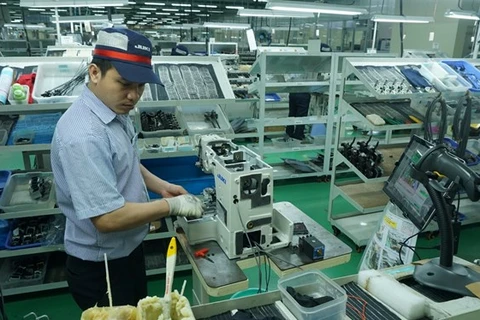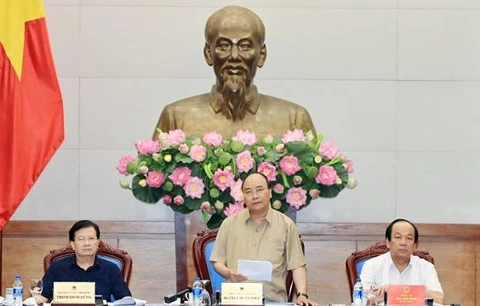Can Tho (VNA) – A training workshop was held in Can Tho city on May 18 to provide provincial and municipal officials with information about the Mekong Delta Plan to support the implementation of Resolution 120/NQ-CP on sustainable and climate-resilient development of the Mekong Delta.
The event was co-hosted by the Ministry of Natural Resources and Environment, the Embassy of the Netherlands in Vietnam, the International Union for Conservation of Nature (IUCN) and Can Tho University, with about 300 domestic and foreign delegates in attendance.
At the workshop, experts highlighted the Mekong Delta as a region that has played a significant role in Vietnam’s socio-economic development over the past decades, particularly in the fields of agriculture, aquaculture and environmental protection towards sustainable development. The 36,000-sq.km delta is the largest agricultural hub of Vietnam, accounting for half of the country’s rice output, over 65 percent of aquatic product output and more than 75 percent of fruit production.
The future of the Mekong Delta is being threatened by climate change and economic growth, said Vice Rector of Can Tho University Tran Trung Tinh.
He cited the fact that the Mekong Delta is one of the five deltas most vulnerable to climate change in the world and stressed that impacts of climate change, unplanned development and overexploitation of natural resources is seriously jeopardizing the future of the delta.
The workshop was the last activity of a project titled “Development and implementation of a communication and information dissemination strategy for the principles and recommendations in the Mekong Delta Plan”, an awareness raising campaign for the long-term development vision of the Mekong Delta within the framework of the Strategic Partnership Arrangement on Climate Change Adaption and Water Management between the Governments of Vietnam and the Netherlands, and funded by the Netherlands through the Netherlands Enterprise Agency (RVO).
According to Pham Phu Binh, Director of the International Cooperation Department under the Ministry of Natural Resources and Environment, the Government of Vietnam and international community have been developing various strategies and programmes to adapt to and mitigate the impacts of climate change, of which the Mekong Delta Plan has been a key initiative.
Written in 2013 within the framework agreement between Vietnam and the Netherlands, it has become a key reference document and source of guidance for the Vietnamese government. The plan recommends principles for sustainable development, taking into account both economic prospects and environmental considerations, including climate change.
Prime Minister Nguyen Xuan Phuc issued the Resolution 120/NQ-CP last year, stating that in the context of globalization and international integration, the Mekong Delta has a great opportunity for development but also faces a great challenge because it is vulnerable to natural changes.
The resolution sets a vision by 2100, the Mekong Delta will sustainably, safely and prosperously develop on the foundation of high-quality agriculture in combination with services, ecological tourism, and industry, especially processing industry, which will help to increase the value and competitiveness of agricultural products. The infrastructure system of the delta will be carefully planned.
To reach the goal, by 2050, the Mekong Delta will become a region which has moderately good development and a modern social organization level. At that time, income per capita of the delta will be higher than the national average; the proportion of ecological agriculture and high-quality applied agriculture will reach 80 per cent.
The resolution also provides numerous comprehensive solutions, such as establishing ecological sub-regions for agriculture as economic development and infrastructure construction, and setting up a master plan for sustainable development in the Mekong Delta while adapting to climate change.-VNA
VNA

























